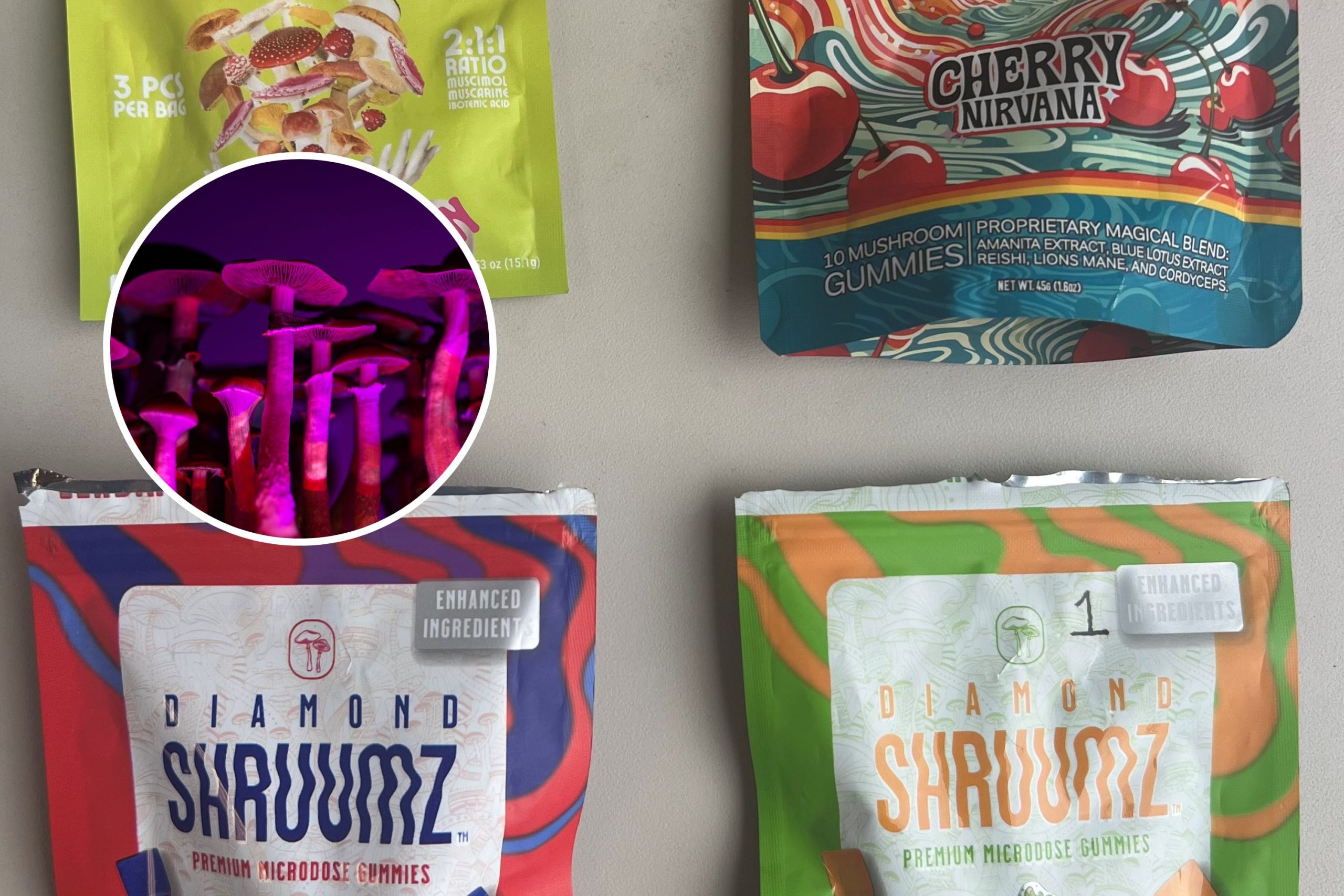Mushroom gummies sold to promote brain health have been found to contain the psychedelic substance psilocybin, which is also found in magic mushrooms.
Five people in Virginia, including a three-year-old child, fell ill after consuming the gummies, according to a new Centers for Disease Control and Prevention’s Morbidity and Mortality Weekly Report.
The four adult patients had taken the gummies on purpose, but the child had consumed them accidentally. All five patients were released after treatment, but the child stayed at the hospital overnight.
Researchers also found other harmful ingredients in the gummies, including the hallucinogen psilocin, as well as caffeine, ephedrine, and kratom.
UVA Health / ISTOCK / GETTY IMAGES PLUS
UVA Health Medical Center’s emergency department saw the swath of sicknesses linked to the gummies between September last year and June, leading UVA’s Blue Ridge Poison Center to test five different brands of the products.
These were not the exact brands that the patients had consumed, but three of the tested brands said that they contained the same ingredients. The other two claimed to contain “mushroom nootropics,” which is a term often used to advertise products claiming to improve brain health and cognition.
Of the five brands that were found being sold in Central Virginia gas stations and smoke shops, three contained psilocybin or psilocin. Both of these substances are active ingredients in magic mushrooms. They are classified as “Schedule I” drugs by the U.S. Food and Drug Administration, making them illegal at both the federal and state level.
Psilocybin and psilocin both induce altered states of consciousness, including visual and auditory hallucinations, changes in perception of time, and profound emotional experiences. Psilocybin is converted into psilocin in the body, which is the active compound that affects the brain.
Psilocybin and psilocin are generally considered to have low toxicity, but physical risks include nausea, vomiting, and, in rare cases, more severe physiological reactions. Adverse effects can include anxiety, paranoia, and “bad trips,” especially in high doses or in individuals with a predisposition to mental health disorders.
All of the tested products claimed to contain the legal Amanita muscaria mushroom, but none stated that they contained psilocybin or psilocin, nor caffeine, ephedrine, and kratom.
Kratom is a psychoactive substance derived from the leaves of a tropical tree native to Southeast Asia. It has a long history of traditional use for its stimulant and opioid-like effects.
“People tend to equate ‘legal’ with ‘safe,’ which is not necessarily the case. These products are not regulated and can contain any number of unlabeled substances which, when consumed, can cause undesired symptoms,” Avery Michienzi, the UVA Health poison center’s assistant medical director, said in a statement.
“Some packages will have QR codes showing that the products were tested in a lab and contain only what they are labeled to contain. These have been found to be inaccurate.”
These discoveries are concerning, the researchers say, as they indicate gummies and other products like these across Virginia and possibly the whole country may contain undisclosed ingredients that could be harmful. They urge doctors to watch for symptoms of having consumed psilocybin and psilocin, especially in kids, as they may not appear on hospital drug screens.
“While we anticipated that we might find some undisclosed ingredients, we were surprised to find psilocybin and psilocin knowing that they are scheduled drugs,” Lindsay Bazydlo, the UVA Health lab’s medical director, said in the statement. “The consumer should be given accurate information about what substances are included in these products.”
Do you have a tip on a science story that Newsweek should be covering? Do you have a question about hallucinogenics? Let us know via science@newsweek.com.
Uncommon Knowledge
Newsweek is committed to challenging conventional wisdom and finding connections in the search for common ground.
Newsweek is committed to challenging conventional wisdom and finding connections in the search for common ground.
